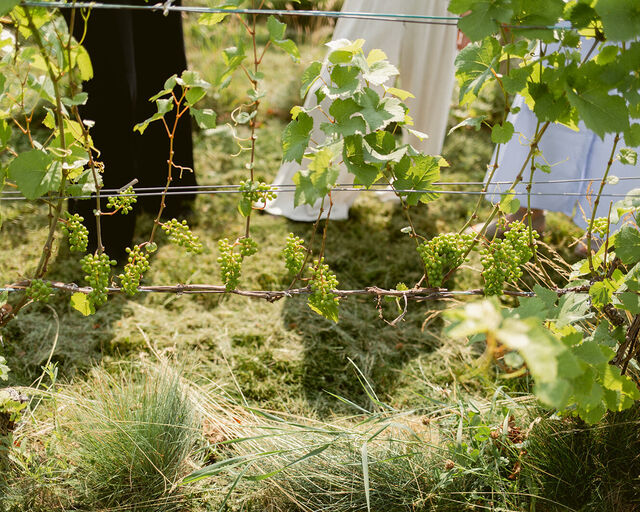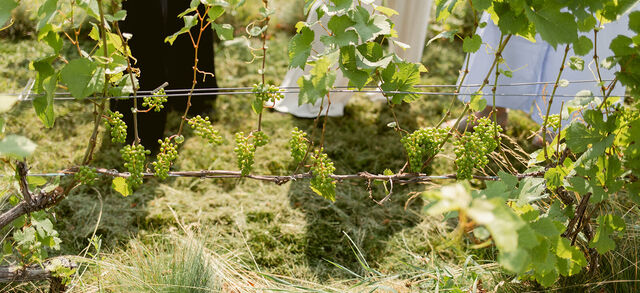
Super Bowl Food Ideas: easy snacks and wine pairings for game day
4 min read
2 min read
Happy summer! This week things are finally beginning to slow down and stabilize in the vineyard. We are at the stage called “bunch closure” which is when the grapes within the clusters have grown enough to touch and group together.
We grow a lot of Pinot Noir (about half of what we grow is PN) and it is a famously tight cluster and thinned skinned grape. This combination makes it difficult to grow because the skins break easily from the pressure of the surrounding grapes, and when the skin breaks, rot can set in. It’s doubly difficult because this rot (called “botrytis”) is particularly prevalent in Michigan's wet and humid summer and fall climate. They don’t worry nearly as much about botrytis in dry, arid areas like eastern Washington or the Willamette Valley of Oregon.
So why do we grow Pinot Noir here if it’s so difficult? Well, the payoff is totally worth it. Our well drained sandy soils and cool climate gives our pinot noir a bright acidity and complex flavor that wouldn’t be possible in a region with warmer nights and richer soil. The resulting wine would be “flabby” and overly alcoholic. Ours are bright, crisp, fruit forward, and light like a Pinot Noir is supposed to be. Try the 2024 Treehouse at bigLITTLE!
Our workers are busy pulling leaves from around the clusters by hand. This is a labor intensive process but allows more sunlight and airflow to get to the clusters. More sunlight means more developed flavor, and more airflow means thicker skins (which leads to more complex flavor) and less rot.
We will be doing cluster counts this week. We count every cluster in a number of panels (the space between posts, usually 4-5 vines) and get an average cluster count per vine. Then by extrapolating that out to the number of vines and multiplying by the average historical cluster weight, we can come up with a predicted harvest weight of a given vineyard.
The last two seasons have been all time record harvests (0.15% difference between the two, so we calls it a tie) but this year is probably going to be a bit lighter. It was a particularly cool spring, and the total crop load was adjusted to make sure our quality was still top notch. It’s difficult to develop good flavors with a heavy crop in a cool year. If you’ve only got a half tank of gas, don’t plan to go as far as you would with a full tank.
This season, we embarked on an experiment to improve the health of our soil. Our compost tea experiment is going very well. We are forgoing traditional (even organic) fungicides in one of our blocks and using compost tea instead. The idea is that the microbes in the tea will out compete the bad guys that cause disease, kind of like a probiotic.
So far, it’s working incredibly well. Even though the conditions for diseases like downy mildew have been optimal with the cool and wet season we’ve had, the experimental block is still clean. The compost tea is working! Eventually we may move away from fungicides and use compost tea on the whole vineyard. More to come on this experiment!
- Mike Formisano (Vineyard Manager)
Other News
See More News
